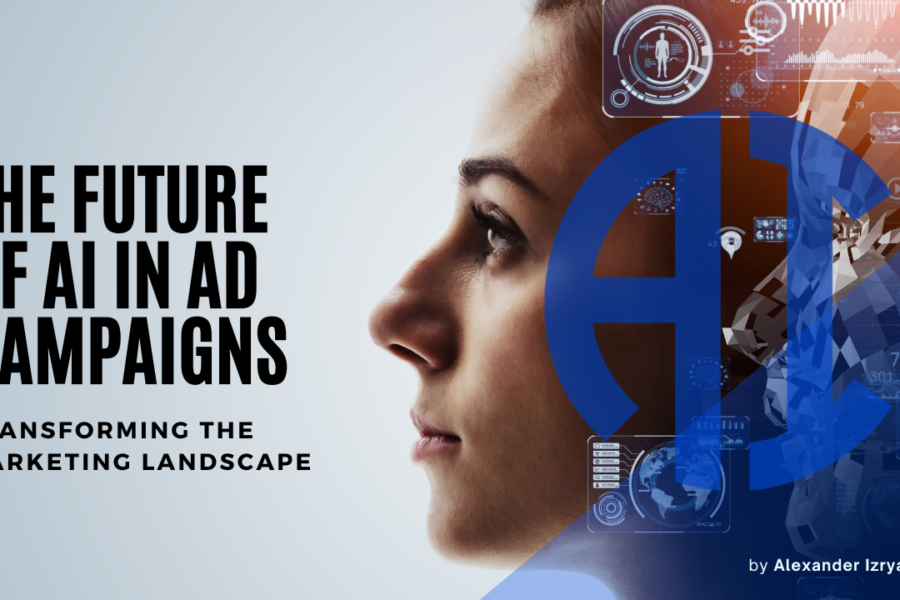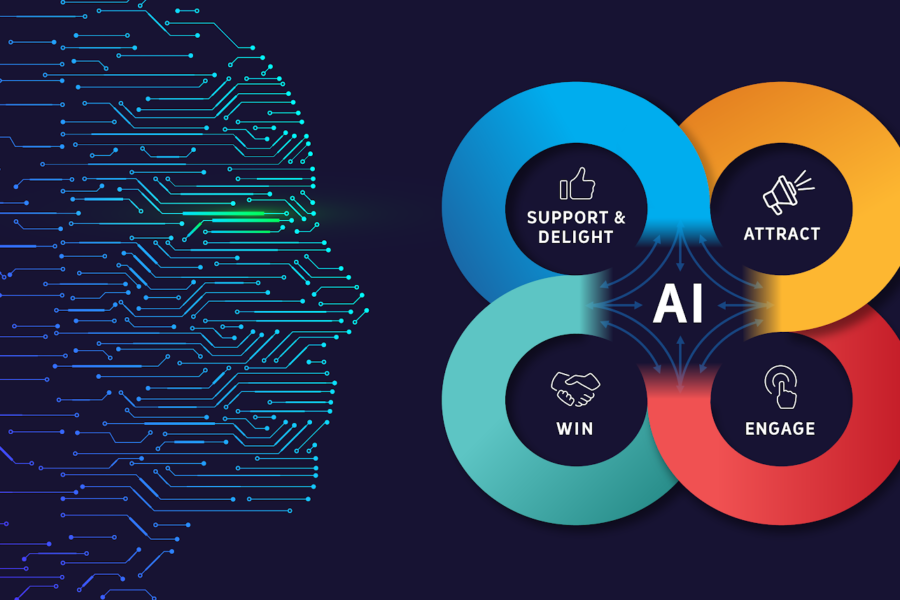AI in Advertising: Revolutionizing the Future of Marketing
Artificial Intelligence (AI) is transforming industries across the globe, and advertising is no exception. With its ability to analyze vast amounts of data and create personalized experiences, AI is rapidly reshaping how brands engage with consumers. As the advertising landscape continues to evolve, AI is becoming an essential tool that enables marketers to optimize their strategies, streamline operations, and deliver highly targeted campaigns.
In this article, we will explore the growing role of AI in advertising, its benefits, challenges, and the innovative ways it is revolutionizing digital marketing.
What is AI in Advertising?
AI in advertising refers to the use of machine learning algorithms, natural language processing (NLP), and data analytics to automate and enhance various advertising processes. It allows advertisers to leverage consumer data and create more personalized, engaging, and efficient campaigns. From predictive analytics to programmatic advertising, it is helping brands optimize every aspect of their marketing efforts.
AI-powered tools can analyze user behavior, preferences, and interactions with content in real-time, enabling advertisers to tailor ads based on individual needs. This personalization improves the relevance of ads, increases engagement rates, and ultimately drives higher conversion rates.
The Benefits of AI in Advertising
- Personalization at Scale: One of the most significant advantages of using AI in advertising is the ability to deliver highly personalized content to consumers. AI can process large datasets to identify patterns in consumer behavior, preferences, and past interactions with ads. Using this data, AI algorithms can predict the type of content that will resonate with each individual, ensuring that ads are not only relevant but also timely.
Personalized advertising is no longer limited to a few basic parameters such as location or age. With AI, advertisers can now create dynamic ads tailored to specific consumer behaviors, interests, and even the time of day. This level of personalization leads to more meaningful interactions with audiences, improving customer satisfaction and increasing the likelihood of conversions.
- Improved Targeting and Efficiency: AI in advertising enables advertisers to improve targeting precision. Traditional advertising relied heavily on broad demographic categories, but AI allows marketers to target users based on deeper insights, such as online behavior, interests, and past interactions with a brand. With AI, brands can segment their audiences more effectively and deliver highly relevant messages to the right people at the right time.
AI also helps streamline ad placement and budget allocation. By analyzing real-time data, AI systems can automatically adjust campaigns, optimizing performance and maximizing return on investment (ROI). This automated approach saves time and resources while ensuring campaigns run efficiently.
- Predictive Analytics for Better Decision Making: Predictive analytics is another powerful feature of AI in advertising. By analyzing historical data, AI can forecast future consumer behavior, helping marketers make informed decisions about their campaigns. For example, AI can predict when a consumer is most likely to convert, the types of products they are interested in, and even which channels will drive the most engagement.
With this predictive capability, advertisers can tailor their campaigns more effectively, ensuring they reach consumers at the optimal time with the right message. This ability to anticipate consumer needs leads to higher engagement and better campaign performance.
- Programmatic Advertising Automation: Programmatic advertising, which uses AI to automate the buying and placement of ads in real-time, has been a game-changer in the advertising industry. With programmatic advertising, advertisers can target specific audiences more accurately and bid for ad inventory in an automated and efficient manner. AI in advertising takes programmatic advertising to the next level by continuously optimizing ad placements based on performance data, ensuring that ads are served to the right people at the right time.
Programmatic advertising powered by AI has revolutionized the digital ad ecosystem, making it possible for brands to reach highly targeted audiences at scale, while minimizing ad spend wastage.
- Enhanced Customer Experience: AI plays a significant role in improving the overall customer experience in advertising. Through chatbots, virtual assistants, and other AI-powered tools, brands can engage with consumers in a more personalized and interactive manner. AI chatbots, for example, can handle customer inquiries in real-time, providing instant support and recommendations based on the user’s preferences.
By enhancing the customer experience through AI, brands can build stronger relationships with their audiences, improve brand loyalty, and increase customer retention rates.
Innovative Ways AI is Revolutionizing Advertising
- AI-Powered Content Creation: AI in advertising is not limited to targeting and analytics—it is also transforming how content is created. AI-powered tools can generate ad copy, images, and even videos, allowing brands to quickly produce engaging content that resonates with their target audience. Natural language generation (NLG) and computer vision technologies are enabling advertisers to create content that feels more authentic, relevant, and tailored to individual users.
Additionally, AI can help optimize ad content based on performance data, suggesting improvements to enhance engagement. With AI-generated content, brands can keep their messaging fresh, dynamic, and aligned with the preferences of their audience.
- AI-Driven Social Media Advertising: Social media advertising is one area where AI in Advertising is making a significant impact. Social media platforms like Facebook, Instagram, and Twitter use AI algorithms to analyze user interactions and behavior, allowing advertisers to create highly targeted ads. AI can identify the most effective times to post ads, determine which types of content will resonate with specific audiences, and even automatically adjust ad copy and visuals to maximize engagement.
AI is also enhancing social media influencers’ ability to create more personalized and effective campaigns. By leveraging AI tools to analyze audience data, influencers can tailor their content to better align with their followers’ interests, resulting in more authentic and impactful ads.
- Voice and Visual Search Ads: Voice search and visual search technologies are gaining popularity, and AI in advertising is enabling brands to capitalize on these trends. With voice-activated devices like Amazon Alexa and Google Assistant, consumers can search for products and services simply by speaking. AI-powered voice search allows advertisers to create voice-enabled ads that respond to consumer queries in real-time, providing a more interactive and engaging advertising experience.
Visual search, on the other hand, allows users to search for products by uploading images, rather than typing in keywords. AI algorithms analyze the images to identify similar products, enabling advertisers to deliver highly relevant visual search ads. This innovative use of AI is changing the way consumers discover products and interact with brands.
- AI for Ad Fraud Detection: AI in advertising is also being used to detect and prevent ad fraud. Ad fraud is a significant issue in digital advertising, with billions of dollars lost each year to fraudulent activity. AI algorithms can analyze patterns in ad traffic, identify suspicious activity, and flag fraudulent ads before they cause harm. By using AI for fraud detection, advertisers can ensure that their ad spend is not wasted on non-human or fake impressions, improving the overall integrity of digital advertising campaigns.
Challenges and Ethical Considerations of AI in Advertising
While the benefits of AI in advertising are undeniable, there are challenges and ethical concerns that need to be addressed. One major concern is data privacy. As AI relies heavily on consumer data to deliver personalized ads, advertisers must ensure that they comply with data privacy regulations such as GDPR. Brands must prioritize transparency, giving consumers control over their data and ensuring that their information is handled responsibly.
Additionally, there is the risk of over-reliance on AI. While AI can optimize many aspects of advertising, human creativity and intuition remain essential in crafting truly compelling campaigns. Advertisers should use AI as a tool to enhance their strategies, not replace the creative processes that drive brand success.
The Future of AI in Advertising
The future looks promising, with continued advancements in machine learning, natural language processing, and computer vision. As AI technology evolves, we can expect even more personalized, efficient, and interactive advertising experiences. From hyper-targeted ads to AI-generated content, the potential for innovation is vast.
As AI continues to reshape the advertising landscape, brands that embrace this technology will have a competitive edge in delivering better customer experiences, improving campaign performance, and optimizing their marketing efforts.
Conclusion
AI in advertising is not just a trend—it is the future of marketing. With its ability to automate processes, optimize targeting, and deliver personalized experiences, AI is revolutionizing the advertising industry. By embracing AI technology, advertisers can create more effective, engaging, and efficient campaigns that resonate with consumers and drive measurable results.
As the world of AI continues to evolve, advertisers must stay ahead of the curve, leveraging this technology to enhance their strategies and maintain a competitive edge in an increasingly digital and data-driven world.






